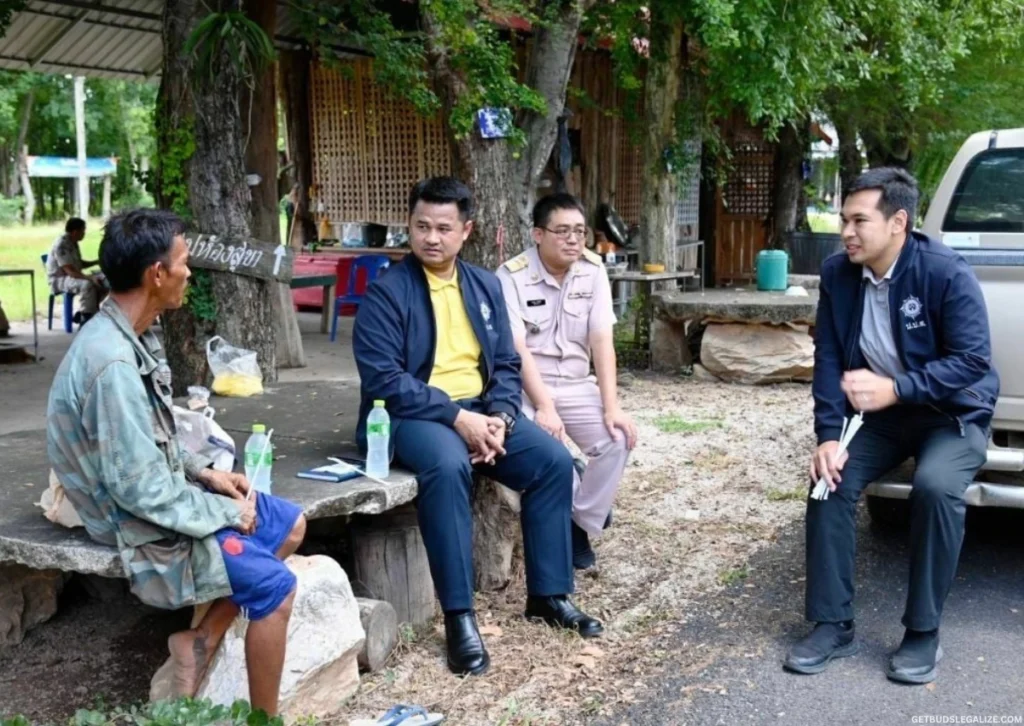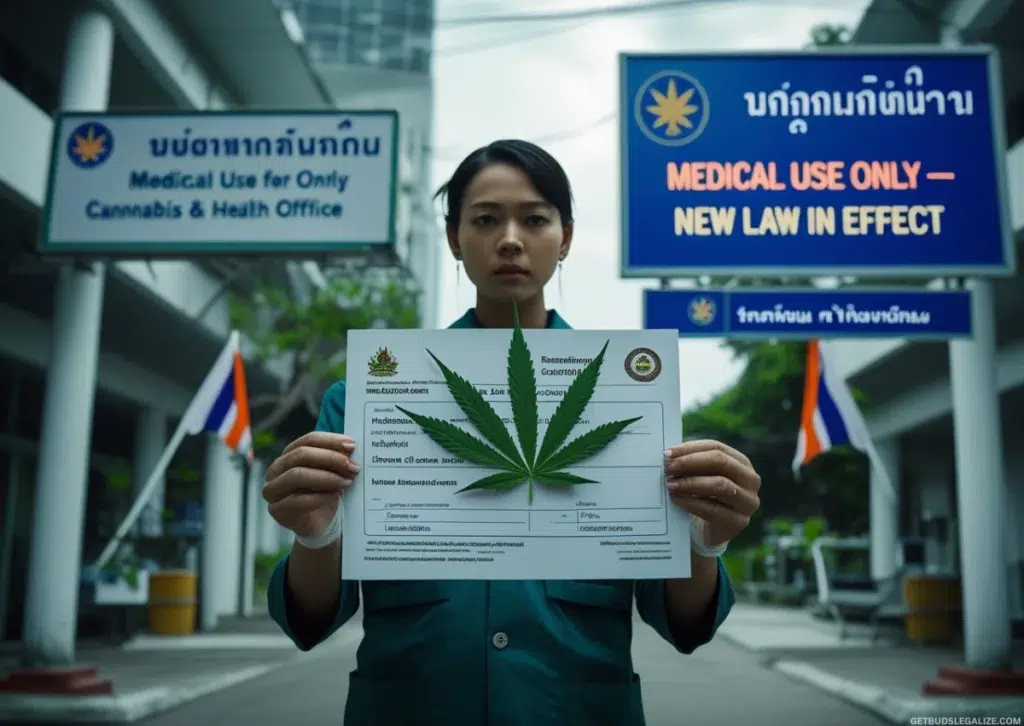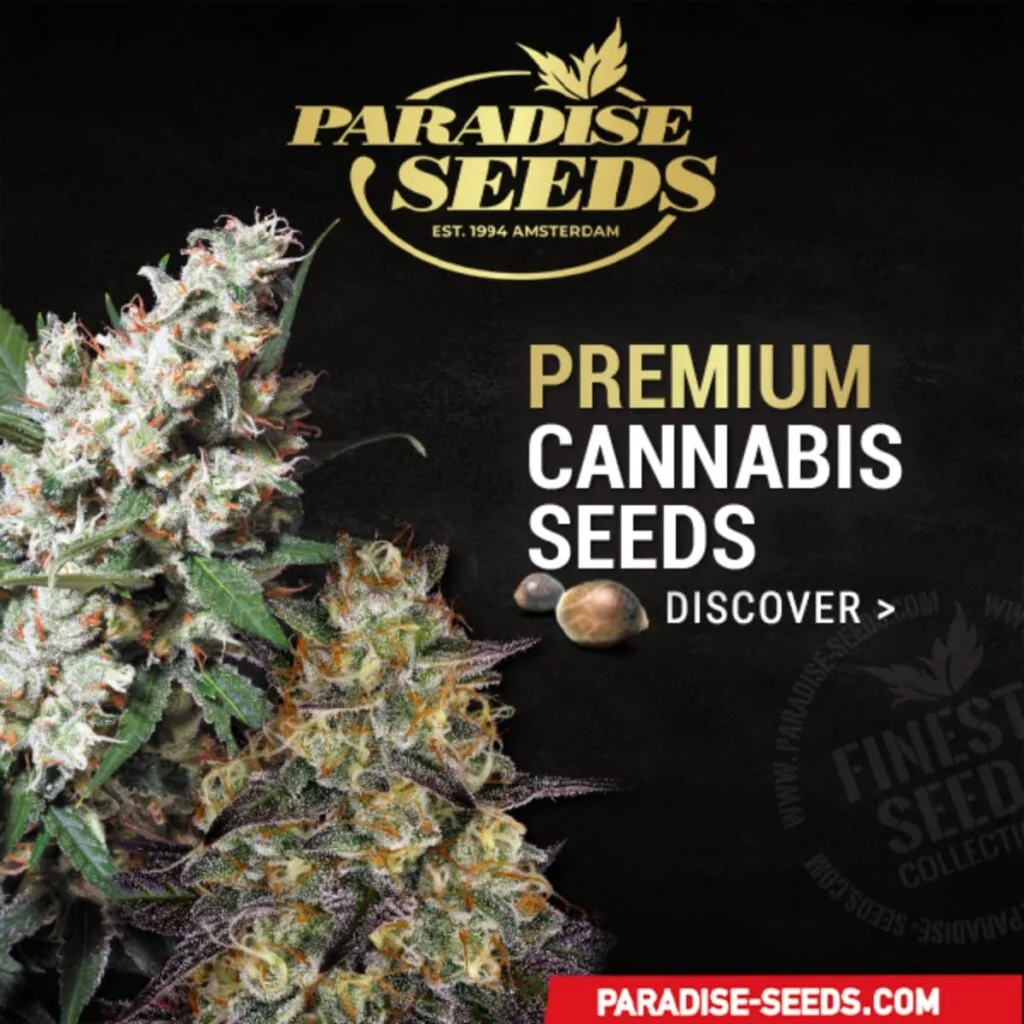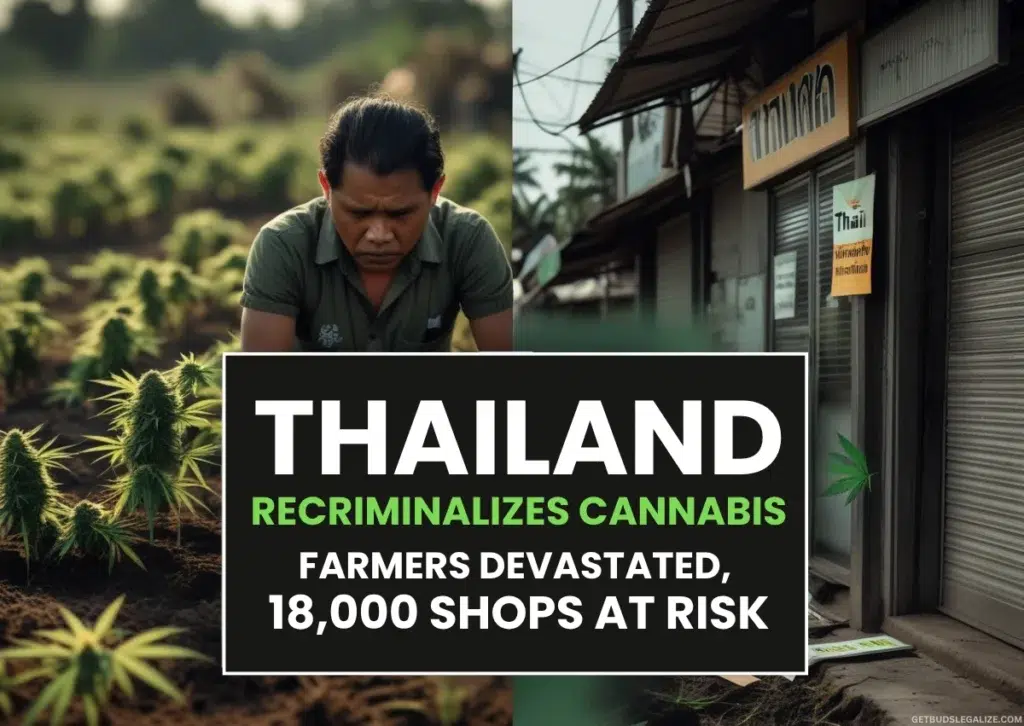Thai Man Walks 700km to Escape Cannabis Addiction | A Journey of Recovery and Hope
“I’m walking this path for my family—their love is my strength.”
In a powerful act of self-redemption, 46-year-old Piya from Ratchaburi, Thailand, has taken the extraordinary step of walking over 700 kilometers on foot to escape a long-standing cannabis addiction.
His destination is Chiang Mai—a place where he hopes to start a new chapter in life, far from the triggers of his past.
With only a change of clothes and a fierce will to transform, Piya’s journey has gone viral in Thailand, igniting a broader national dialogue on cannabis addiction, recovery, and personal resilience in a country still adjusting to the aftershocks of cannabis decriminalization.
A 700km Walk Against Addiction
Piya’s road to sobriety isn’t paved by clinics or support groups—it’s the literal road itself. For over 20 days, he has walked across provinces, sleeping in temples, roadside shelters, and even police stations. To survive, he collects and sells empty cans, using the few baht earned to buy basic meals.
“I’ve overcome many addictions in the past—but cannabis was the one that held on the longest. This walk is my way of reclaiming my life,” he says.
What keeps him going isn’t just willpower—it’s love. His 74-year-old mother and sister call daily, offering emotional strength from afar. “Their love keeps me going,” he repeats, pausing to catch his breath under the Thai sun.
Help From Strangers and the State
On June 9, more than 400 kilometers into his journey, officials from the Narcotics Control Board (ONCB) met Piya in Sukhothai. They treated his blistered feet, gave him food and first aid, and even replaced his broken phone—ensuring he could stay connected to the family who fuels his mission.
“We see in him the strength that so many people seek when fighting addiction,” said one ONCB official.

Thailand’s Cannabis Crossroads
Thailand made international headlines in 2022 by becoming the first Asian nation to decriminalize cannabis. But a rise in recreational use, youth access, and addiction concerns has prompted a nationwide policy rethink. New restrictions are now being drafted.
In this context, Piya’s story serves as a wake-up call—challenging assumptions that cannabis is entirely harmless and reigniting debate around personal freedom, public health, and responsibility.
Related Article:
A Bigger Picture: Addiction, Pain, and Hope
Piya’s walk isn’t an isolated case. In April, a man in Udon Thani battling methamphetamine addiction turned himself in to police, choosing jail over emotional pain.
These stories reveal a deeper truth: addiction is not always about substances—it’s about suffering, trauma, and the quiet fight for self-control.
Toward a New Life
Piya’s goal is simple: honest work and peace in Chiang Mai. He walks not only to distance himself from addiction but to prove that anyone—no matter how far gone—can find a way back.
Each step forward is a small reclaiming of dignity.
Final Thoughts: Rethinking Recovery in Thailand
Piya’s recovery path is unconventional but undeniably powerful. His story raises a bigger question:
Can personal action succeed where formal treatment systems fall short?
In a world of policies, statistics, and quick fixes, Piya’s journey reminds us of the quiet power of love, discipline, and human will. He’s not just leaving addiction behind—he’s stepping into a future of resilience, renewal, and hope.
Frequently Asked Questions (FAQs)
As of mid-2025, Thailand is in the process of tightening its cannabis laws. While cannabis was decriminalized in 2022, a rise in recreational use, especially among youth, has led to draft legislation that may reclassify cannabis as a controlled substance. Personal use in public is discouraged, and commercial sales are increasingly regulated. The final law is still under debate.
Currently, cannabis can be bought legally in licensed dispensaries, but only for medical and health-related use. The sale of cannabis flower for smoking may soon be restricted under the new law. Recreational use, especially smoking in public, remains legally gray and socially discouraged.
Thailand aimed to boost its economy and promote cannabis as a wellness crop for medical and industrial use. However, a lack of clear regulation led to widespread recreational access, triggering concerns over addiction, underage use, and public health.
Yes, cannabis can be addictive, especially when used heavily over time. Cannabis Use Disorder (CUD) is a recognized condition characterized by dependence, withdrawal symptoms, and compulsive use despite negative consequences. Not everyone who uses cannabis becomes addicted, but risk increases with frequency, dosage, and early age of first use.
Common signs include:
- Needing more cannabis to feel the same effects
- Cravings and irritability when not using
- Difficulty cutting down or quitting
- Continued use despite harm to work, relationships, or health
- Loss of interest in hobbies or responsibilities
Recovery options include:
- Government-run rehab programs through hospitals and local health offices
- Private clinics specializing in substance dependence
- Community-based programs or religious retreats (e.g., temple stays)
- Unconventional approaches, like Piya’s journey, driven by personal discipline and social support
Yes. Thailand’s Ministry of Public Health and the Narcotics Control Board offer free or low-cost services, including detox, counseling, and outpatient rehab. Local hospitals can refer individuals to appropriate care, and some Buddhist temples also provide spiritual recovery programs.
- Visit your local district hospital or health office: Many offer counseling and addiction recovery services.
- Call a national support hotline: Contact the Mental Health Hotline at 1323 or the ONCB for confidential help.
- Seek help at Buddhist recovery temples: Places like Wat Thamkrabok provide traditional detox programs rooted in mindfulness and discipline.
- Talk to someone you trust: A family member, close friend, or mentor can offer emotional support and help you take the first steps toward recovery.
While not a clinical solution, journeys like Piya’s can be transformative for those motivated by self-discipline, spiritual reflection, and emotional healing. These paths work best when combined with ongoing support, whether through family, faith, or community.
We rely on our partners to provide you with the best products and services. By purchasing from them, you support our website and get high-quality products. Thank you for being part of our community!
ILGM Fertilizer:
Feed Your Plants Right

The Ultimate Cannabis Fertilizer – designed to fuel every stage from seedling to harvest.
✅ Feeds 5+ plants
✅ Big savings with bundle
✅ Works in soil, coco, or hydro
✅ Supports bigger, healthier yields






















